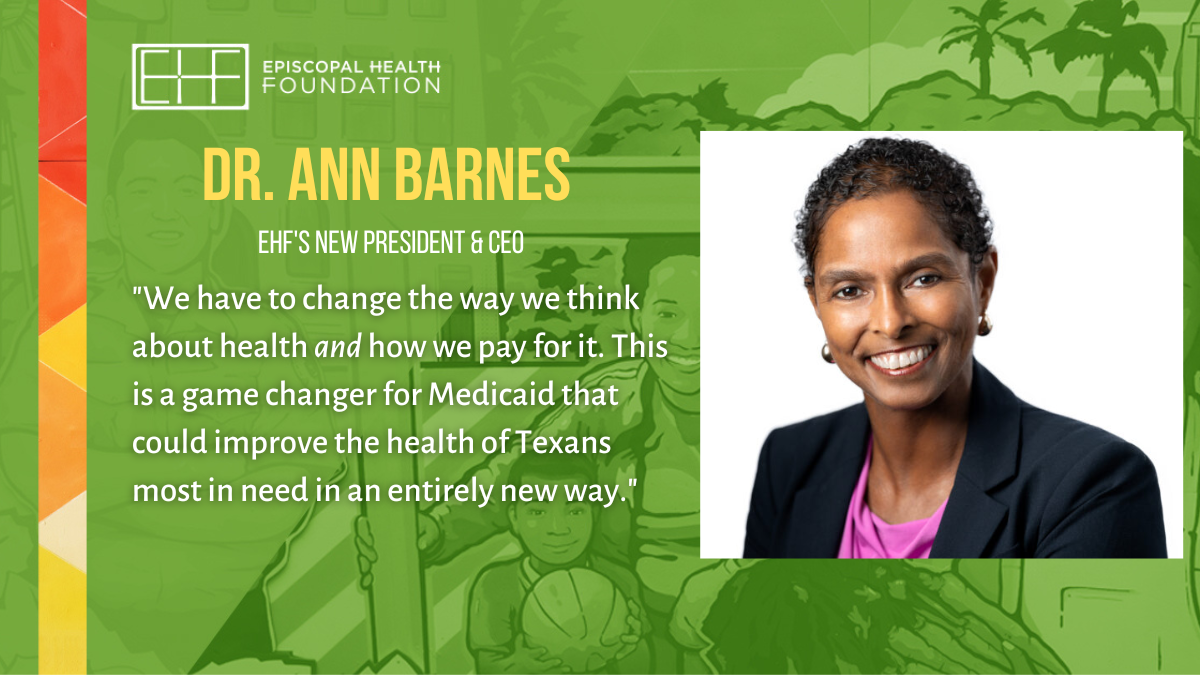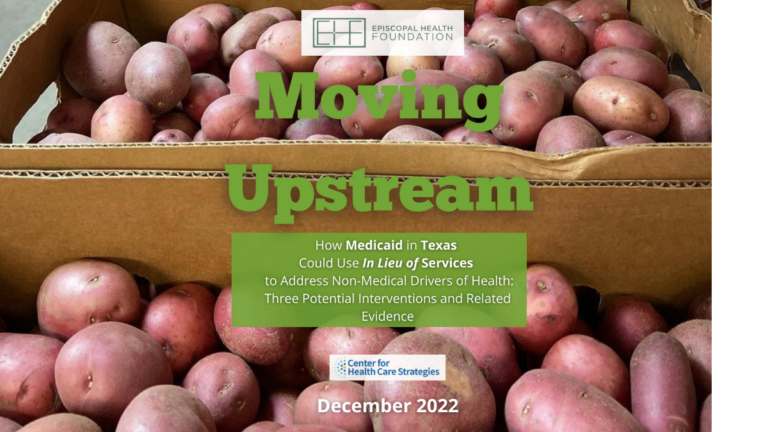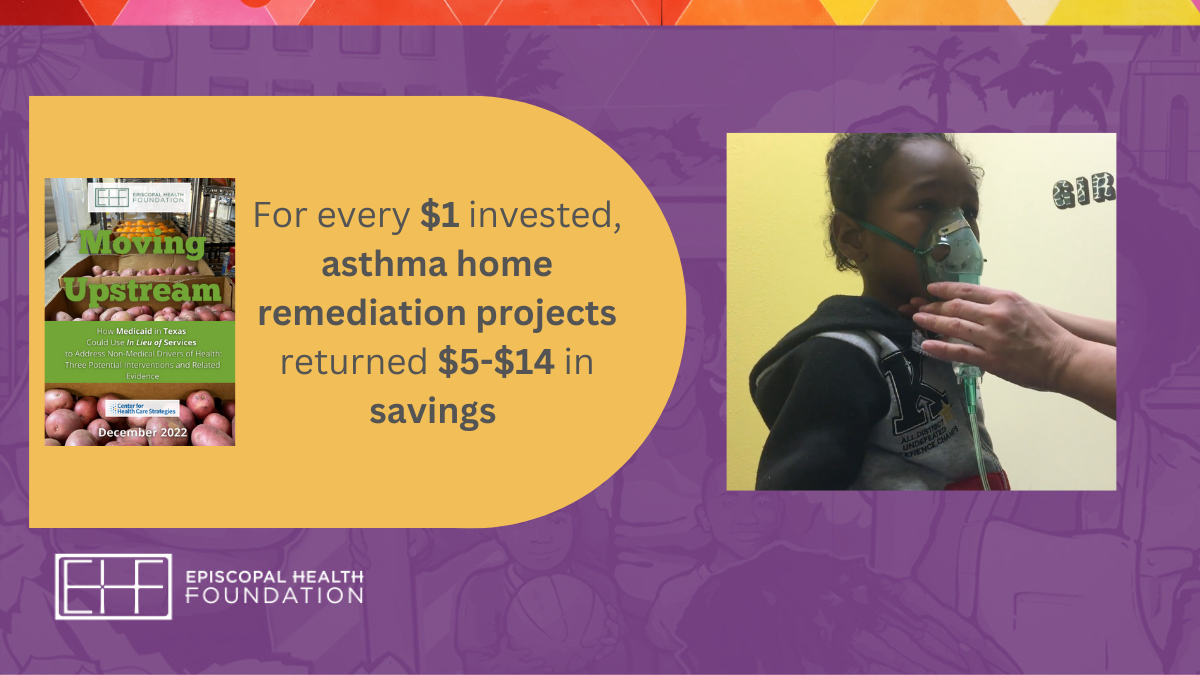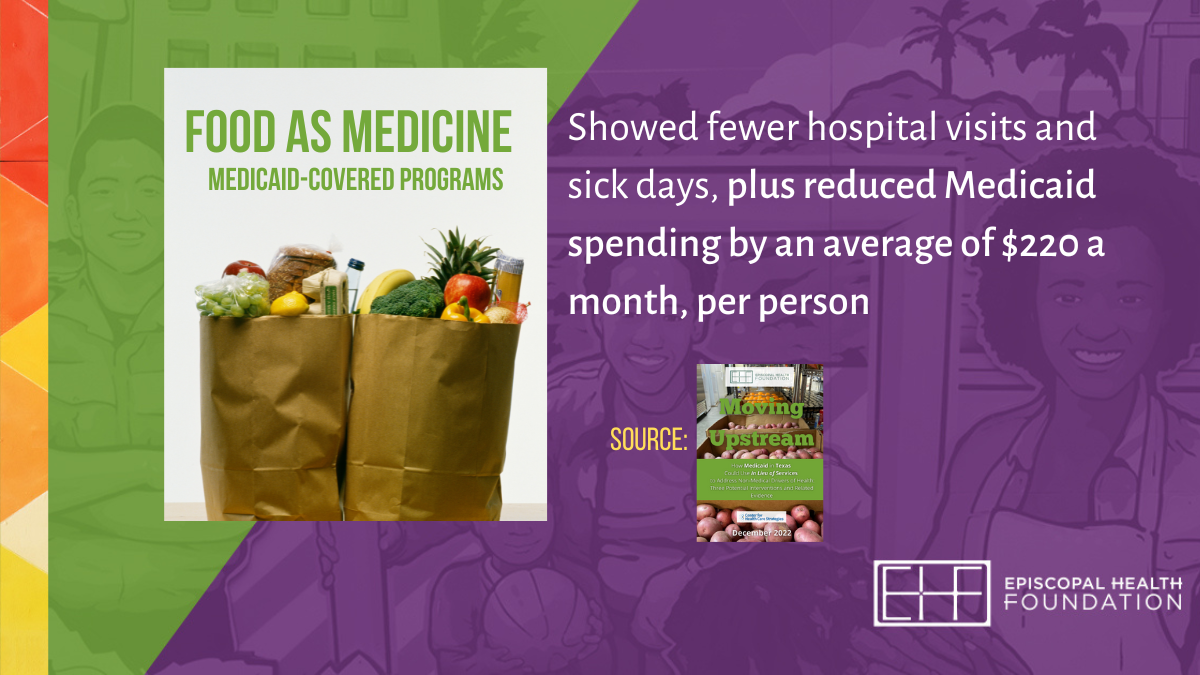Report is part of state advisory committee recommendations urging lawmakers to approve similar programs for Medicaid in Texas
Researchers outline benefits of projects focused on asthma home remediation, food as medicine, and support services for housing programs
Evidence from Medicaid across the country show that programs outside the doctor’s office that address non-medical drivers of health result in improved health outcomes for Medicaid enrollees and increased financial savings. Those are key findings from a new report from Episcopal Health Foundation and the Center for Health Care Strategies that outlines how similar non-medical programs could be supported by Medicaid in Texas.
The report is part of 2022 legislative recommendations from the Texas Value-Based Payment and Quality Improvement Advisory Committee that urge state lawmakers to expand “upstream” Medicaid programs to cover non-medical drivers of health – the conditions in which people live, work, play, and age that influence their health and wellness.

Researchers found that non-medical programs covered by Medicaid that worked to address three areas – asthma triggers in homes, lack of access to affordable healthy food, and housing issues — not only resulted in health benefits like fewer ER visits and less sick days, but also showed significant Medicaid total cost of care savings.
For example, the report describes how an asthma remediation program identified mold in a 12-year-old girl’s home as a key trigger of her asthma attacks. The program then paid to remove and replace moldy carpeting. The result: she had fewer asthma attacks, no absences from school, and a better ability to keep her asthma under control.
The report also provides details on the cost-effectiveness of these non-medical programs. Researchers say Centers for Disease Control reviews of similar asthma remediation projects across the country showed that for every $1 invested, projects returned anywhere from $5 to $14 in overall savings.
“This is a game changer that could improve the health and wellness of Texans most in need in an entirely new way,” Barnes said. “As a philanthropy, we’ve funded asthma remediation projects and food as medicine programs that have shown great health improvements, but they were limited to patients of a single clinic or area. This report describes a great opportunity for Medicaid in Texas to cover these non-medical programs on a much larger scale across the state with sustainable funding.”
The report says the Center for Medicaid and CHIP Services has approved similar non-medical programs in other states and new guidance will outline how states like Texas can use what’s called “in lieu of services” authority to pay for programs that cover non-medical drivers of health instead of only covering traditional medical care.
Other successful non-medical programs cited in the report include food as medicine projects like medically-tailored meals for those with diabetes and other chronic illnesses, produce prescriptions for low-income families, and health supporting grocery projects for older adults and pregnant women.
Again, researchers found not only did these programs show health improvements like less hospital visits and sick days, but also reduced Medicaid spending on medical care by an average of $220 a month per person.
The report found similar evidence of health and financial benefits in housing-related programs that assist people in getting apartments after leaving mental health facilities, providing financial assistance which pays for one-time housing costs like making homes accessible for disabilities, and helping people learn how to maintain housing through education on avoiding eviction and negotiations with landlords.
Along with showing the benefits of these non-medical programs, the report outlines specific ways that Medicaid, Texas Health and Human Services, and Medicaid-managed care organizations could implement the interventions.



